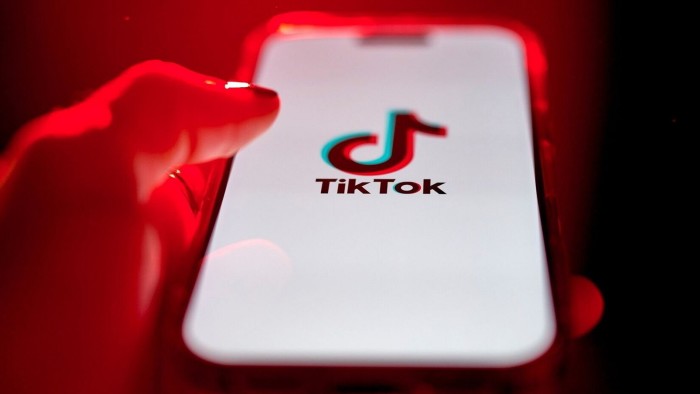The U.S. Supreme Court has upheld a divestment or ban law targeting TikTok, leaving the video app potentially facing a blackout for its 170 million U.S. users and putting its fate in the president’s hands elected Donald Trump.
The law requires TikTokByteDance’s Chinese parent company must sell the platform by January 19 – the day before Trump returns to the US presidency – or face a nationwide ban.
“There is no doubt that, for more than 170 million Americans, TikTok provides a distinctive and expansive means of expression, a means of engagement, and a source of community,” the Supreme Court wrote in a unanimous opinion published Friday.
“But Congress has determined that divestment is necessary to address its well-founded national security concerns about TikTok’s data collection practices and its dealings with a foreign adversary,” it adds.
Friday’s ruling by the country’s highest court means the video app could “disappear” in one of its largest markets. But the Biden administration said following the decision that the outgoing president would not enforce the ban during the remaining days of his term.
“Given the simple fact of timing, this administration recognizes that action to implement the law must simply fall to the next administration, which takes office on Monday,” the White House said.
“TikTok should remain accessible to Americans,” he adds, “but simply under U.S. ownership or other ownership that addresses the national security concerns identified by Congress in crafting this law.”
Trump said in a job on Truth Social following the ruling that its “decision on TikTok will be made in the not too distant future, but I must have time to review the situation”, adding that the court’s decision was “expected and everyone must respect”.
In a video posted to TikTok following the decision, the group’s chief executive, Shou Zi Chew, gave no assurances about whether the app would continue to operate in the United States on Sunday, but did praise of Trump.
“I want to thank President Trump for his commitment to working with us to find a solution to keep TikTok available in the United States. This is a strong stance in support of the First Amendment and against arbitrary censorship,” he said, adding that the president-elect “really understands” the agenda.
Unless a buyer is found for TikTok within days, it will be illegal for companies to provide distribution or hosting services for the video app, subject to fines of $5,000 per user.
It is unclear whether tech groups such as Apple and Google will continue to offer the app on their app stores, or whether Oracle, which provides cloud and data services to TikTok in the United States, will continue to do it from Sunday. It is also unclear whether the company could also deliberately go offline to protect its partners. Apple, Google and Oracle did not immediately respond to requests for comment.
U.S. Attorney General Merrick Garland said the ruling “allows the Department of Justice to prevent the Chinese government from using TikTok as a weapon to undermine U.S. national security.” Assistant U.S. Attorney General Lisa Monaco added that “the next phase of this effort – implementing and ensuring compliance with the law after it takes effect on January 19 – will be a process that takes place in the time “.
TikTok has said any split would be technologically infeasible, while Beijing has previously indicated it would oppose any sale.
The ruling was issued by the court shortly after Trump said Friday that he had discussed TikTok during a call with Chinese President Xi Jinping. It was the first call between the leaders in four years.
The Supreme Court’s decision upholds one of the boldest legislative moves of Biden’s term, just days before the Democratic president leaves the White House.
On Thursday, Trump’s new national security adviser, Mike Waltz, said the legislation “allows for an extension as long as a viable deal is on the table.” Essentially, this buys President Trump time to keep TikTok running.
Chinese officials have held preliminary discussions about whether billionaire Elon Musk – now a close ally of Trump – could negotiate a deal to sell the platform, according to the Financial Times. reported this week.
Some potential buyers and partners have lobbied Trump. These include Frank McCourt, an American media and sports businessman, who created a consortium of investors who would bid for TikTok through his non-profit entity, Project Liberty.
TikTok chief Chew has launched a charm offensive to shore up Trump’s support, including planning to attend a “victory rally” for the president-elect in Washington on Sunday and his inauguration on Monday, according to two people close to him. of the file.
The TikTok legislation, passed with strong bipartisan support last year, was driven by concerns that the popular video platform could be used by Beijing for espionage or propaganda.
Even though China “has not yet exploited its relationship with ByteDance Ltd to access the data of US TikTok users,” the top court said, there was “no basis for concluding that the government’s determination that China might do so is not at least a “reasonable decision.” inference[e] based on substantial evidence.”
TikTok asked the Supreme Court to hear its case after a U.S. appeals court rejected its challenge to the law, as well as its subsequent request to stay the measure pending further legal proceedings.
The social media app sought to throw out the law, arguing it was unconstitutional and violated the First Amendment’s free speech protections.
Additional reporting by Aime Williams in Washington and Stephen Morris and Michael Acton in San Francisco









